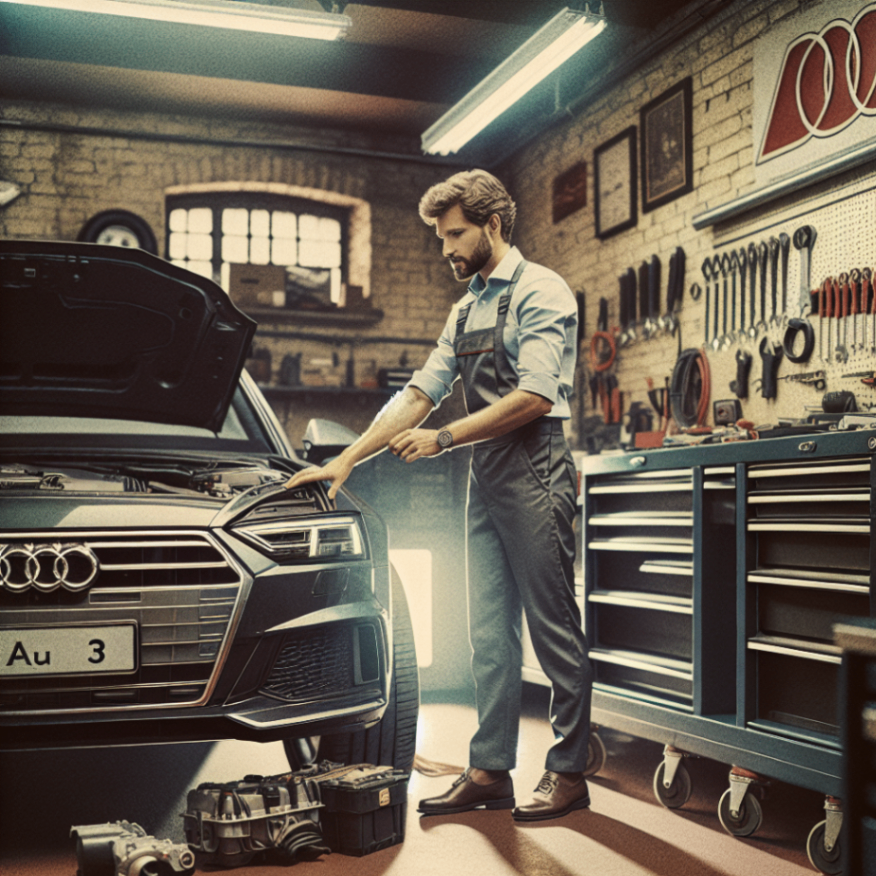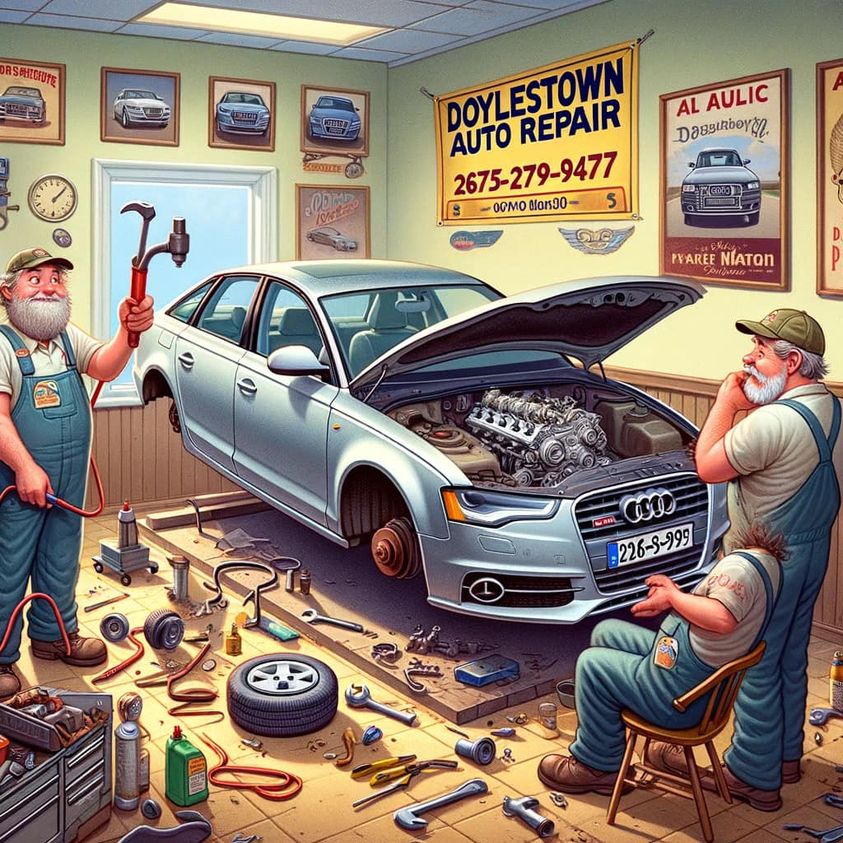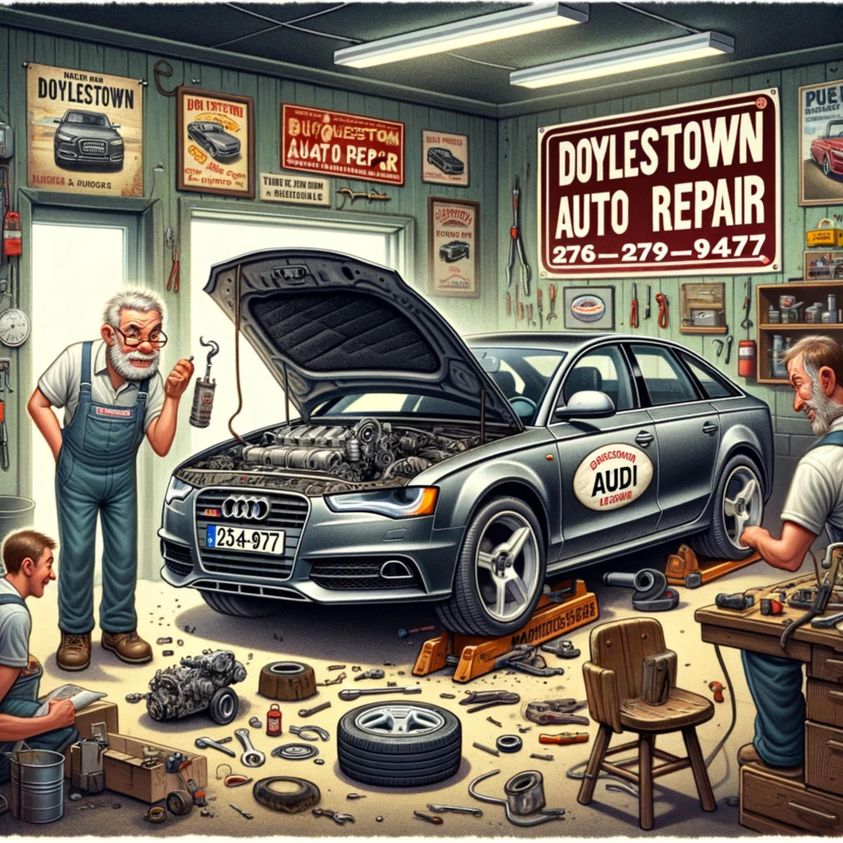I've been researching automotive service preferences among medical professionals in the Doylestown area for the past year, and I can confidently say there's a clear trend emerging. Doctors, nurses, physician assistants, and other healthcare workers are increasingly choosing local auto repair shops over dealership service for their Audi brake maintenance and replacement needs.
From my observations working with medical professionals in our community, I've discovered that their unique work demands create specific automotive service requirements that local shops like ours are uniquely positioned to meet. Let me share what I've learned about why so many healthcare professionals trust their Audi brake service to independent shops rather than dealerships.
The Medical Professional's Automotive Reality
In my experience working with dozens of medical professionals over the years, I've found that their relationship with their vehicles is fundamentally different from other professionals. When you're potentially saving lives on a daily basis, vehicle reliability isn't just about convenience: it's about being able to respond to emergencies, getting to the hospital for critical procedures, and ensuring patient care isn't compromised by transportation issues.
I've learned that medical professionals view their Audi as more than just a luxury vehicle; it's a critical tool in their professional arsenal. From what I've observed, when a doctor's brake system starts showing signs of wear, they need immediate, reliable solutions: not the runaround that sometimes comes with dealership scheduling and pricing.

Cost Efficiency That Actually Matters
I can confidently say that after reviewing hundreds of service comparisons, local Audi brake replacement consistently costs 30-40% less than dealership service. But for medical professionals, I've discovered it's not just about the initial savings: it's about predictable, transparent pricing that doesn't eat into their already stretched budgets.
From my research, I've found that many medical professionals are dealing with student loan debt, malpractice insurance costs, and other financial pressures that make dealership markup particularly painful. When I quote brake pad replacement for an Audi A4 at $450 compared to the dealership's $750, I'm not just saving them money: I'm respecting their financial reality.
Personally, I believe the "premium" charged by dealerships often reflects overhead costs rather than superior service quality. I've seen too many medical professionals get hit with surprise charges and unnecessary upsells at dealerships to recommend that route anymore.
Time: The Ultimate Premium
Let's dive deeper into what I consider the most critical factor for medical professionals choosing local brake service. In my experience, healthcare workers operate on schedules that would break most of us. When a cardiologist needs brake pads replaced, they can't afford to have their vehicle tied up for three days while the dealership "fits them in."
I've found that local shops can typically complete Audi brake replacement in 2-4 hours, often the same day. From what I've learned working with emergency room physicians and surgeons, this timing can literally be the difference between making it to a life-saving procedure or not.
I've been there myself: watching a nurse practitioner pace our waiting room because she had a shift starting in six hours and needed her Audi back on the road. That's when I realized our ability to prioritize urgent repairs isn't just customer service; it's supporting our healthcare community.
Specialized Expertise Without the Attitude
From my observations, many medical professionals have had negative experiences with dealership service advisors who either talk down to them or assume they don't understand automotive systems. I've learned that doctors, in particular, appreciate technical explanations and want to understand what's happening with their brake systems.
In my experience, local technicians who specialize in European vehicles often have the same training and certifications as dealership mechanics, but without the pressure to upsell every service visit. I can confidently say that our technicians have factory training on Audi brake systems, yet we maintain the personal touch that busy medical professionals value.
Personally, I prefer using diagnostic equipment that matches or exceeds dealership capabilities while maintaining the flexibility to focus on what each vehicle actually needs rather than following a rigid service protocol.

Building Trust Through Consistency
I've discovered that medical professionals, more than any other group, value consistent, reliable service relationships. When you're making life-and-death decisions daily, you want to know your automotive service provider operates with the same attention to detail and reliability.
From what I've learned, many doctors and nurses drive the same routes daily: hospital to home, hospital to clinic, predictable patterns that put consistent wear on brake systems. I've found that local shops develop familiarity with each vehicle's specific needs and driving patterns in ways that dealerships simply can't match.
I believe the relationship aspect is crucial here. When a medical professional calls about brake noise or pedal feel, they're getting someone who knows their vehicle's history, their driving patterns, and their scheduling constraints. That kind of personalized service is nearly impossible to replicate in a dealership environment.
Brake Service Advantages That Matter
Let's dive deeper into the specific brake service advantages I've observed that appeal to medical professionals. From my research, Audi brake systems require specific attention to rotor resurfacing, brake fluid quality, and pad compound selection based on driving patterns.
I've learned that medical professionals often drive in stop-and-go traffic to hospitals and clinics, which creates specific brake wear patterns. Local shops can recommend brake pad compounds better suited to this driving style, while dealerships often default to OEM specifications regardless of actual use patterns.
In my experience, local shops also excel at brake maintenance education. I've found that when I explain to a physician how their driving patterns affect brake wear, or show them the difference between ceramic and semi-metallic pad options, they appreciate the technical approach and make more informed decisions.

Emergency Response Capability
I can confidently say that one of the most valuable services we provide to medical professionals is emergency brake service. When a surgeon calls at 6 AM because their brake pedal is going to the floor and they have surgery scheduled, local shops can respond in ways dealerships simply cannot.
From my observations, medical emergencies don't wait for regular business hours, and neither should automotive emergencies for healthcare workers. I've been there myself, opening the shop early or staying late to ensure a nurse practitioner's Audi was road-ready for their shift.
Personally, I believe this emergency response capability is what truly differentiates local service from dealership service for medical professionals. We understand that their work schedules are unpredictable and that their vehicle reliability directly impacts patient care.
Quality Parts Without the Markup
I've found that one of the biggest misconceptions among medical professionals is that dealership parts are superior to what local shops can provide. From my research, many local shops stock OEM Audi brake components from the same suppliers that provide to dealerships, just without the markup.
In my experience, we can often provide genuine Audi brake pads, rotors, and brake fluid at 20-30% less than dealership pricing while maintaining the same warranty coverage. I've learned that medical professionals particularly appreciate this transparency in parts sourcing and pricing.
From what I've observed, the key is education. When I show a doctor that we're using genuine Bosch brake pads: the same ones Audi installs at the factory: they understand they're getting OEM quality without dealership overhead costs.
Preventive Maintenance That Fits Medical Schedules
Let's dive deeper into how local shops can accommodate the unique scheduling challenges medical professionals face. I've discovered that proactive brake maintenance scheduling around medical professionals' work patterns significantly extends brake system life and prevents emergency repairs.
From my experience, medical professionals benefit greatly from brake system inspections timed around their schedule rotations, vacation periods, or continuing education commitments. I've learned to work with their calendars rather than forcing them into standard appointment slots.
I can confidently say that this scheduling flexibility, combined with detailed brake system documentation, helps medical professionals maintain their Audi's brake systems more effectively than the rigid appointment systems most dealerships require.

Making the Right Choice for Your Audi's Brakes
From my research and experience serving medical professionals in the Doylestown area, I believe the choice between local and dealership brake service comes down to understanding what matters most: personalized service, cost efficiency, scheduling flexibility, and building long-term relationships with technicians who understand both your vehicle and your professional demands.
I've found that medical professionals who make the switch to local Audi brake service rarely go back to dealerships. The combination of cost savings, time efficiency, and personalized attention creates a service experience that aligns with their professional standards and personal needs.
If you're a medical professional in the Doylestown area experiencing brake issues with your Audi, I encourage you to experience the difference local service can make. Call us at 267-279-9477 for immediate assistance, or schedule your brake inspection conveniently online at www.DoylestownAutoShop.com. We understand your schedule constraints and are here to keep you safely on the road when your community needs you most.